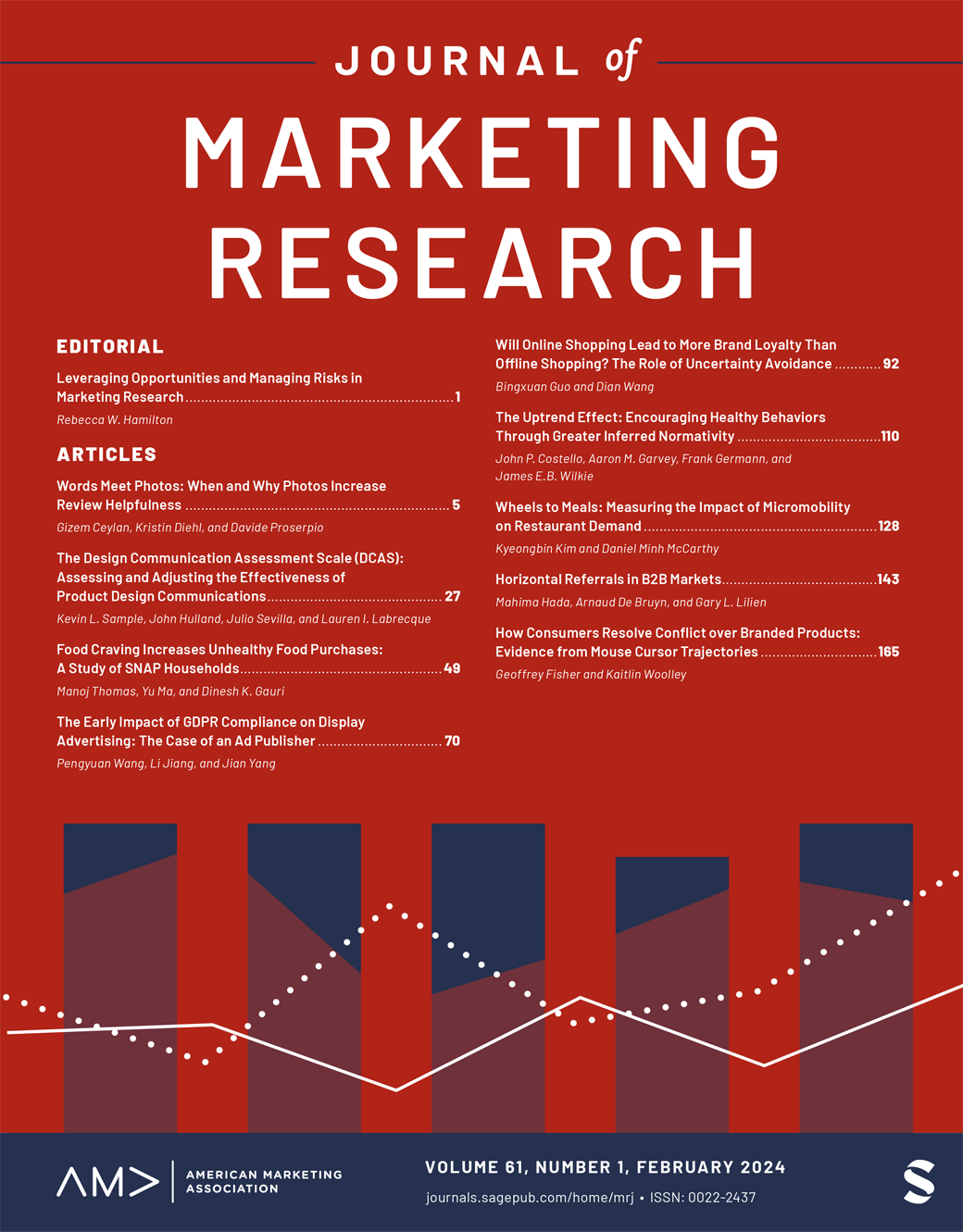揭穿关于消费品的错误信息:对信念和购买行为的影响
IF 5
1区 管理学
Q1 BUSINESS
引用次数: 1
摘要
错误信息的普遍存在刺激了各种利益相关方——监管机构、媒体和竞争公司——揭穿市场上的虚假声明。本文研究这些方提供的揭穿信息是否会影响消费者的购买行为。如果是这样,揭穿真相是否有效地纠正了消费者被误导的信念——从政策制定者的角度来看,这是一个理想的结果——或者它只是强化了正确的信念,正如有偏见的信念更新所预测的那样?由于理论提供了相互矛盾的预测,我们设计并实施了一个联合实验,使我们能够衡量暴露于现实世界的错误信息和揭穿信息下的支付意愿。重点关注三种产品类别中普遍存在错误信息的成分(除臭剂中的铝,牙膏中的氟化物和食品中的转基因生物),我们发现揭穿在减轻错误信息的影响方面起着重要作用。更具体地说,揭穿真相可以通过纠正错误观念来减弱由错误信息引起的支付意愿下降,这对政策制定者来说是一个有希望的发现。我们讨论了企业揭穿错误信息或引入符合错误信息的新产品的动机。本文章由计算机程序翻译,如有差异,请以英文原文为准。
EXPRESS: Debunking Misinformation about Consumer Products: Effects on Beliefs and Purchase Behavior
The prevalence of misinformation has spurred various interested parties—regulators, the media, and competing firms—to debunk false claims in the marketplace. This paper studies whether such debunking messages provided by these parties can impact consumer purchase behavior. If so, does debunking effectively correct consumers’ misinformed beliefs—an ideal outcome from a policy-maker’s perspective—or does it merely reinforce correct beliefs, as predicted by biased belief updating? With theory providing contradictory predictions, we design and implement a conjoint experiment that enables us to measure willingness-to-pay under exposure to real-world misinformation and debunking messages. Focusing on three ingredients in product categories where misinformation is prevalent (aluminum in deodorants, fluoride in toothpastes, and GMOs in food), we find that debunking plays an important role in mitigating the impact of misinformation. More specifically, debunking can attenuate the decrease in willingness-to-pay caused by misinformation by correcting misbeliefs, a promising finding for policy-makers. We discuss the incentives for firms to debunk misinformation or to introduce new products that conform to misinformation.
求助全文
通过发布文献求助,成功后即可免费获取论文全文。
去求助
来源期刊

Journal of Marketing Research
BUSINESS-
CiteScore
10.30
自引率
6.60%
发文量
79
期刊介绍:
JMR is written for those academics and practitioners of marketing research who need to be in the forefront of the profession and in possession of the industry"s cutting-edge information. JMR publishes articles representing the entire spectrum of research in marketing. The editorial content is peer-reviewed by an expert panel of leading academics. Articles address the concepts, methods, and applications of marketing research that present new techniques for solving marketing problems; contribute to marketing knowledge based on the use of experimental, descriptive, or analytical techniques; and review and comment on the developments and concepts in related fields that have a bearing on the research industry and its practices.
 求助内容:
求助内容: 应助结果提醒方式:
应助结果提醒方式:


